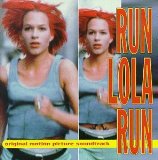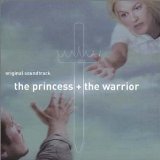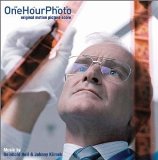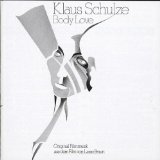We’ve been following Reinhold Heil and Johnny Klimek for a few years now. I loved their integral score to Run Lola Run, composed with director Tom Tykwer. Their ambient soundtracks to The Princess and the Warrior and One Hour Photo put them on the Echoes map.



We’ve been wanting to interview them for some time and now I’m just back from seeing them in Los Angeles where they revealed music for their next film with Tykwer, Perfume, and one that’s still in production, Anamorph. Heil and Klimek reveal the struggle of the Hollywood film composer, last man on the creative totem pole after the producer, director, actors and writers. The duo has been fortunate in working with a director like Tykwer, who is also a musician. They record together collectively as Pale 3. Their soundtracks with him stretch the medium, from Run Lola Run’s techno to Princes and the Warriors orchestral electronic ambiences to the neo-classical score they’ve composed for Perfume. But other films with different directors, like The Cave, Land of the Dead and Swimming Upstream reveal more conventional approaches and Hollywood friendly sounds. Surprisingly, Heil and Klimek cite John Williams as a favorite composer. He’s done some great scores, but I think that he, along with James Horner and a few others have trapped the Hollywood film score in the faux orchestral terrain that makes soundtracks like Run Lola Run and One Hour Photo exceptions to the rule. Composers like Williams tap tried and true archetyps and a grandeur rooted in the past, and ignorant of the present. Whenever I see the first Star Wars Trilogy, I think that this would have been so much better with a less conventional score. In fact, I keep toying with the idea of doing a show where we re-score soundtracks. Think of the Normandy invasion sequence in Saving Private Ryan with Max Richter’s The Trees Minority Report’s transparent touch screen with Bluetech’s Sines & Singularities or the opening scene of Star Wars with Klaus Schulze’s Stardancer, itself originally the soundtrack to a porno film. Who could imagine that?

A few artists break through, notably Mark Isham’s score to Crash, Michael Nyman’s soundtrack for The Piano, and many Philip Glass scores, but they are all too rare. When you’ve got 50 or 100 million dollars on the line, it’s always easier to play it safe, so why take chances on the soundtrack, the last man on the totem pole.
Comment posted by
at 10/19/2006 9:35:19 AM
I just ran across an article from slate.com on “The Greatest Film Composer of All Time.” Author Jan Swafford makes an inspired choice, Toru Takemitsu http://www.slate.com/id/2151656
